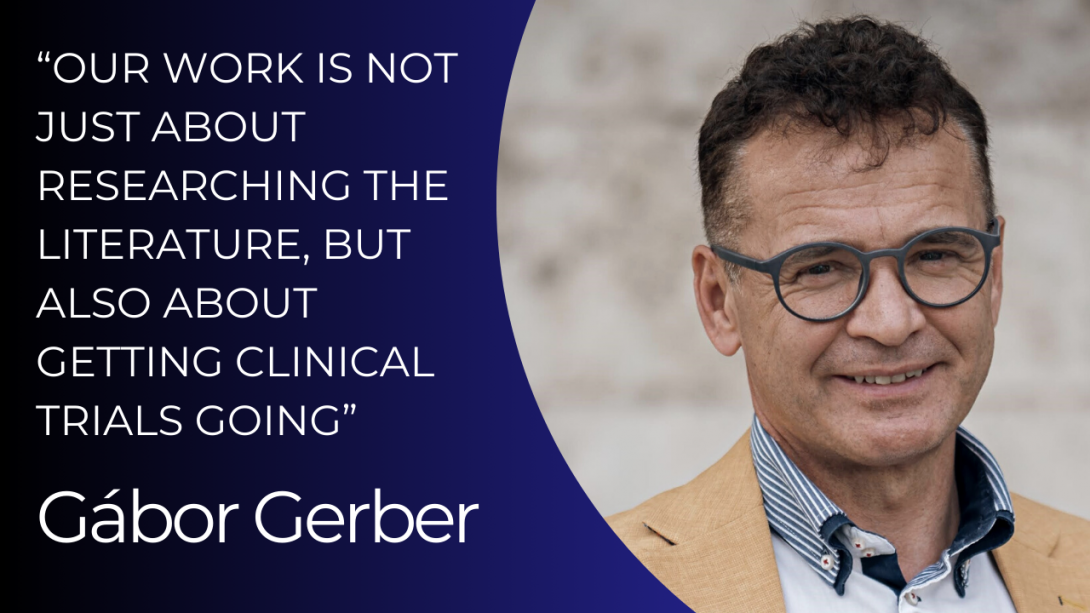
This year, 18 dentists started their PhD training at the Centre for Translational Medicine, which is an outstanding number. The students collaborate with other university departments and hospitals, which is expanding the faculty’s scientific network. In October, the Dentistry Group (Year 1) was named the Group of the Month. We spoke with Prof. Dr. Gábor Gerber, who leads this team and is the Dean of the Faculty of Dentistry at Semmelweis University.
The members of the Faculty of Dentistry are very active collaborators with the Centre for Translational Medicine, several of them serving as supervisors. Simultaneously, many of the students apply to the Centre as PhD students. “We already achieved success with third-year students, with many publications, enhancing the prestige of the faculty. Several of them are now involved in the work of the CTM as Science Methodology Supervisors or Science Methodology Advisors. We also have a large number of students enrolled in the first year. Among them are many international students from various countries of the world, such as Iraq, Brazil, Ireland, and Germany. They were either our students or they came to the Centre for Translational Medicine for their PhD studies. This also raises our international reputation and our recognition. Their studies are focused on dental issues, and they do meta-analyses and systematic reviews. These are also the basis for clinical trials. So, it's not just about literature research and writing articles, but also about getting clinical trials going.”
The Dentistry Group is connected to other fields as well. For instance, there are several studies related to facial and jaw abnormalities and their treatment. These investigations are also examining various fetal harms during the prenatal period, determining their effects on the malformation of facial and jaw areas. This is also considered translational research, because it shows what to look out for in practice during pregnancy to reduce developmental disorders. It is also important to find out how effective surgical interventions are for such problems and when they are recommended. The topic of dental implants and prosthetics also connects to multiple fields, requiring consideration of various perspectives. Some studies are related to education, examining the oral health of individuals with various disabilities and proposing suitable support to ensure optimal oral health. This research is also conducted in collaboration with multiple departments and hospitals, expanding the faculty’s scientific network.
“The students work on projects in pairs, which also develops their cooperation skills. They are very active, preparing and presenting their results week by week. They actively participate in discussions of each other’s work during these meetings. This is very useful as it prepares them for conferences.” Even the first-year students deal with important topics. They start their projects with literature research and then produce a meta-analysis based on their questions. It's a huge work because they have to review many databases, and thousands of publications. They must verify the reliability and relevance of the data contained in them. They have to select only those articles which have good-quality data. Taking part in this research program is not easy but rewarding for those who dedicate time and hard work.
(Szabó Emese)